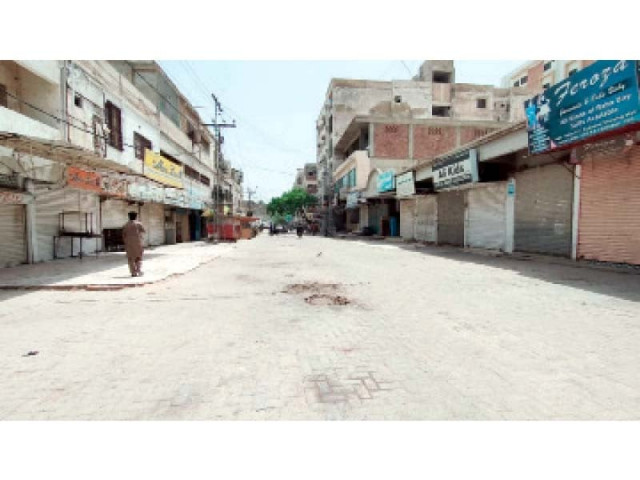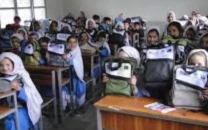Marketplaces deserted as inflation bites hard
Rising prices affect citizens’ everyday shopping

The middle class in Khyber-Pakhtunkhwa (K-P) is grappling with the severe impact of surging inflation, skyrocketing fuel prices, and soaring electricity costs, mirroring the struggles faced by citizens across the country.
The consequences of this economic turmoil are painfully evident, with marketplaces appearing deserted, devoid of the usual throngs of shoppers.
While talking to The Express Tribune, a local trader expressed the prevailing sentiment, stating, “Record inflation has gripped the country, leading people to limit their purchases to essential items, resulting in a significant reduction in market activity.”
The recent hikes in petroleum and electricity prices have triggered a domino effect, causing prices to surge across the board, affecting everything from vegetables and sugar to pulses, oil, and ghee. This price surge has deterred buyers from visiting the markets.
Traders find themselves in a worrisome predicament, as sales have plummeted by nearly 70%, painting a bleak picture for their businesses.
The repercussions of this situation are not limited to urban markets; wholesale bazaars are also experiencing a downturn in activity, compounding the economic woes of the entire region.
Prices have spiraled out of control, tripling in just a few short months, effectively erasing the middle class’s purchasing power in Pakistan. This dire situation has resulted in the country’s monthly inflation rate, measured by the Consumer Price Index (CPI), surging to an alarming 28.3% in July. This figure far surpasses market expectations, which had estimated a rate of 26%. The escalation in CPI inflation is particularly concerning for economists and policymakers, given that it occurs in the first month of the fiscal year 2024.
Several factors contribute to this sharp increase in inflation, with the most significant drivers being the exorbitant prices of essential food items.
Published in The Express Tribune, September 4th, 2023.



















COMMENTS
Comments are moderated and generally will be posted if they are on-topic and not abusive.
For more information, please see our Comments FAQ